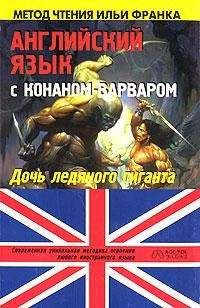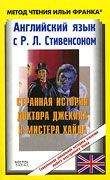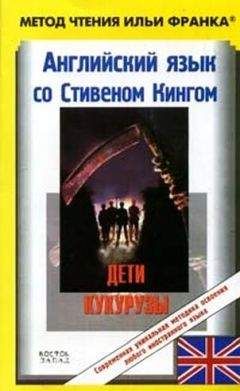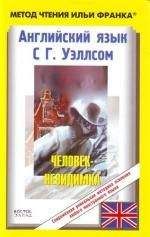glory [ˈɡlɔ: rɪ], below [bɪˈləu], agony [ˈæɡənɪ]
Now the moon glazed out in full glory, lighting the courtyard below where the Stygians' horses stood tethered, moving and whinnying uneasily at the sounds of mortal combat that came from the great hall. Over the roar of battle sounded screams of agony as man after man was torn limb from limb.
Conan dropped, landing lightly on the earth of the courtyard (Конан прыгнул вниз, легко приземлившись на землю внутреннего двора). He sprinted for the great black mare that had belonged to the leader of the slavers (он бросился к большой черной кобыле, которая принадлежала предводителю работорговцев). He would have liked to linger to loot the bodies, for he needed their armor and other supplies (он бы хотел задержаться, чтобы ограбить тела, так как он нуждался в их доспехах и других припасах). The mail shirt he had worn as Belit's piratical partner had long since succumbed to wear and rust (кольчуга, /которую/ он носил, как пират, партнер Белит, уже давно поддалась износу и рже), and his flight from Bamula had been too hasty to allow him to equip himself more completely (а его побег из Бамулы был слишком поспешен, /чтобы/ позволить ему экипироваться более основательно). But no force on earth could have drawn him into that hall (но никакая сила на земле /не/ могла бы затащить его в тот зал), where a horror of living death still stalked and slew (где ужас живой смерти все еще вышагивал и убивал).
worn [wɔ: n], drawn [drɔ: n], completely [kəmˈpli: tlɪ]
Conan dropped, landing lightly on the earth of the courtyard. He sprinted for the great black mare that had belonged to the leader of the slavers. He would have liked to linger to loot the bodies, for he needed their armor and other supplies. The mail shirt he had worn as Belit's piratical partner had long since succumbed to wear and rust, and his flight from Bamula had been too hasty to allow him to equip himself more completely. But no force on earth could have drawn him into that hall, where a horror of living death still stalked and slew.
As the young Cimmerian untethered the horse he had chosen (когда молодой Конан отвязал лошадь, /которую/ он выбрал), a screaming figure burst from the entrance and came pelting across the courtyard toward him (вопящая фигура внезапно появилась от входа и бросилась: «пришла бросаясь» к нему). Conan saw that it was the man who had stood the first sentry-go (Конан увидел, что это был мужчина, который стоял первым в карауле; to stand sentry-go — стоять в карауле, нести караул). The Stygian's helmet and mail shirt had protected him just enough to enable him to survive the massacre of his comrades (шлем и кольчуга стигийца защитили его как раз достаточно, чтобы позволить ему пережить резню его товарищей).
chosen [tʃəuzn], survive [səˈvaɪv], massacre [ˈmæsəkə]
As the young Cimmerian untethered the horse he had chosen, a screaming figure burst from the entrance and came pelting across the courtyard toward him. Conan saw that it was the man who had stood the first sentry-go. The Stygian's helmet and mail shirt had protected him just enough to enable him to survive the massacre of his comrades.
Conan opened his mouth to speak (Конан открыл /свой/ рот, /чтобы/ заговорить). There was no love lost between him and the Stygian people (между ним и стигийским народом не было любви: «не было потеряно любви между ними»); nevertheless, if this Stygian were the only survivor of his party, Conan would have been willing to form a rogues' alliance with him (тем не менее, если этот стигиец был единственным выжившим из его отряда, Конан охотно образовал бы: «был бы охотным образовать» союз бродяг с ним), however temporary, until they could reach more settled country (хотя и временный, пока они /не/ могли = смогут добраться до более населенной местности; would have been — был бы).
love [lʌv], been [bi: n], temporary [ˈtempərərɪ]
Conan opened his mouth to speak. There was no love lost between him and the Stygian people; nevertheless, if this Stygian were the only survivor of his party, Conan would have been willing to form a rogues' alliance with him, however temporary, until they could reach more settled country.
But Conan had no chance to make such a proposal, for the experience had driven the burly Stygian mad (но Конан не имел шанса = Конану не представился шанс сделать такое предложение, так как событие свело большого и сильного стигийца с ума; to drive mad — сводить с ума; burly — крепкий, большой и сильный). His eyes blazed wildly in the moonlight, and foam dripped from his lips (его глаза сверкали дико в лунном свете, а пена стекала из его губ). He rushed straight upon Conan, whirling a scimitar so that the moonlight flashed upon it and shrieking, 'Back to your hell, О demon (он бросился прямо на Конана, вращая симитаром[26] так, что лунный свет сверкал на нем, и вопя: /убирайся/ назад в свой ад, о демон)!
driven [drɪvn], mad [mæd], foam [fəum]
But Conan had no chance to make such a proposal, for the experience had driven the burly Stygian mad. His eyes blazed wildly in the moonlight, and foam dripped from his lips. He rushed straight upon Conan, whirling a scimitar so that the moonlight flashed upon it and shrieking, 'Back to your hell, О demon!
The primitive survival instinct of the wilderness-bred Cimmerian flashed into action without conscious thought (первобытный инстинкт выживания выросшего среди дикой природы киммерийца мгновенно вступил в бой без сознательной мысли = неосознанно / автоматически; to flash — пронестись, быстро промелькнуть, резко перейти к другому действию). By the time the man was within striking distance, Conan's own sword had cleared its scabbard (к тому времени, /когда/ мужчина был на расстоянии удара / в пределах досягаемости, собственный меч Конан /уже/ освободился от ножен). Again and again, steel clanged against steel, striking sparks (снова и снова сталь звенела о сталь, высекая искры). As the wild-eyed Stygian swung back for another slash (когда стигиец с дикими глазами замахнулся для еще одного удара; slash — разрез; прорезь; удар мечом), Conan drove his point into the madman's throat (Конан вонзил: «вогнал» /свое/ острие /клинка/ в горло безумца; to drive — гнать). The Stygian gurgled, swayed, and toppled (стигиец забулькал, покачнулся и упал головой вниз; to topple — валиться, падать (головой вниз); опрокидывать(ся)).
action [ˈækʃn], slash [slæʃ], throat [Ɵrəut]
The primitive survival instinct of the wilderness-bred Cimmerian flashed into action without conscious thought. By the time the man was within striking distance, Conan's own sword had cleared its scabbard. Again and again, steel clanged against steel, striking sparks. As the wild-eyed Stygian swung back for another slash, Conan drove his point into the madman's throat. The Stygian gurgled, swayed, and toppled.
For an instant, Conan leaned on the mare’s saddle bow, panting (на мгновение Конан оперся на луку седла кобылы, тяжело дыша). The duel had been short but fierce, and the Stygian had been no mean antagonist (дуэль была короткой, но яростной, а стигиец был не жалким / убогим соперником).
duel [dju: əl], short [ʃɔ: t], mean [mi: n]
For an instant, Conan leaned on the mare’s saddle bow, panting. The duel had been short but fierce, and the Stygian had been no mean antagonist.
From within the ancient pile of stone, no more cries of terror rang (изнутри древней громады из камня больше не раздавались крики ужаса; to ring — звучать, раздаваться). There was naught but an ominous silence (/не/ было ничего, кроме зловещей тишины). Then Conan heard slow, heavy, shuffling footsteps (затем Конан услышал медленные, тяжелые, шаркающие шаги). Had the ogreish thing slaughtered them all (великанская тварь убила их всех; ogre — великан-людоед)? Was it dragging its misshapen bulk toward the door, to emerge into the courtyard (она тащила свою бесформенную тушу к дверям, /чтобы/ выйти во внутренний двор)?
rang [ræŋ], naught [nɔ: t], heavy [ˈhevɪ]
From within the ancient pile of stone, no more cries of terror rang. There was naught but an ominous silence. Then Conan heard slow, heavy, shuffling footsteps. Had the ogreish thing slaughtered them all? Was it dragging its misshapen bulk toward the door, to emerge into the courtyard?
Conan did not wait to find out (Конан не ждал = не стал дожидаться, чтобы выяснить /это/). With trembling fingers he unlaced the dead man's hauberk and pulled the mail shirt off (дрожащими пальцами она развязал кольчугу мертвого мужчины = мертвеца и стянул кольчужную рубаху). He also collected the Stygian's helmet and shield, the latter made from the hide of one of the great, thick-skinned beasts of the veldt (он также собрал = подобрал шлем и щит стигийца, последний /был/ сделан из шкуры одной из огромных толстокожих тварей вельда).[27] He hastily tied these trophies to the saddle, vaulted upon the steed, wrenched at the reins, and kicked the mare's ribs (он поспешно привязал эти трофеи к седлу, вскочил на лошадь, дернул удила и ударил ногами кобылу под ребра; to kick — бить ногой). He galloped out of the ruined courtyard into the region of withered grass (он вылетел галопом из разрушенного двора в местность с засохшей травой; to gallop — скакать / нестись галопом). With every stride of the flying hoofs, the castle of ancient evil fell behind (с каждым скоком летящих копыт замок древнего зла отставал = отдалялся; to fall behind — отставать).
latter [lætə], steed [sti: d], grass [ɡrɑ: s]
Conan did not wait to find out. With trembling fingers he unlaced the dead man's hauberk and pulled the mail shirt off. He also collected the Stygian's helmet and shield, the latter made from the hide of one of the great, thick-skinned beasts of the veldt. He hastily tied these trophies to the saddle, vaulted upon the steed, wrenched at the reins, and kicked the mare's ribs. He galloped out of the ruined courtyard into the region of withered grass. With every stride of the flying hoofs, the castle of ancient evil fell behind.
Somewhere beyond the circle of dead grass, perhaps the hungry lions still prowled (где-то за кругом мертвой травы, возможно, все еще рыскали голодные львы). But Conan did not care (но Конану было наплевать: «Конан не заботился / тревожился»). After the ghostly horrors of the black citadel, he would gladly take his chances with mere lions (после призрачных ужасов черной цитадели он с радостью померился бы силами с простыми львами; to take one’s chance with — помериться силой с, испробовать свои шансы, попытать удачу; mere — простой, не более чем, всего лишь).
prowl [praul], care [kɛə], mere [mɪə]
Somewhere beyond the circle of dead grass, perhaps the hungry lions still prowled. But Conan did not care. After the ghostly horrors of the black citadel, he would gladly take his chances with mere lions.
Beyond the Black River
(За Черной рекой)
1. Conan Loses His Ax
(Конан теряет /свой/ топор)
The stillness of the forest trail was so primeval that the tread of a soft-booted foot was a startling disturbance (тишина лесной тропы = на лесной тропе была так первозданна, что поступь ступни в мягкой обуви: «мягко обутой» была пугающим нарушением спокойствия). At least it seemed so to the ears of the wayfarer, though he was moving along the path with the caution that must be practised by any man who ventures beyond Thunder River (по крайней мере она казалась такой для ушей путника, хотя он двигался по тропе с осторожностью, которую должна быть соблюдена = нужно соблюдать любому /человеку/, кто отваживается /зайти/ за Громовую реку). He was a young man of medium height, with an open countenance and a mop of tousled tawny hair unconfined by cap or helmet (он был молодым человеком среднего роста, с открытым лицом и копной взъерошенных рыжевато-коричневых волос, непокрытых шапкой или шлемом; to confine — ограничивать; заточать, держать взаперти). His garb was common enough for that country — a coarse tunic, belted at the waist (его наряд был довольно обычным для этой местности — грубая туника, подпоясанная у талии; to belt — перехватывать ремнем, опоясывать;), short leather breeches beneath (короткие кожаные штаны под /ней/), and soft buckskin boots that came short of the knee (и мягкие сапоги из выделанной оленьей кожи, которые не доходили до колен; to come short of — не хватать, не доходить). A knife-hilt jutted from one boot-top (рукоять ножа выдавалась из голенища). The broad leather belt supported a short, heavy sword and a buckskin pouch (широкий кожаный ремень поддерживал короткий тяжелый меч и сумку из оленьей кожи). There was no perturbation in the wide eyes that scanned the green walls which fringed the trail (в широких = широко раскрытых глазах, что разглядывали зеленые стены, которые окаймляли тропу, не было беспокойства). Though not tall, he was well built (хотя /и/ не высокий, он был хорошо сложен), and the arms that the short wide sleeves of the tunic left bare were thick with corded muscle (а руки, которые короткие широкие рукава туники оставляли открытыми, были крепкими с узловатой мускулатурой; to leave — оставлять).





